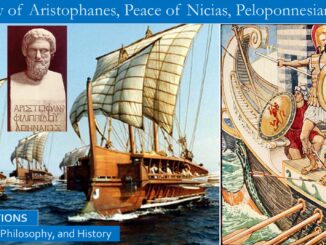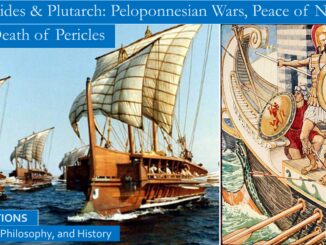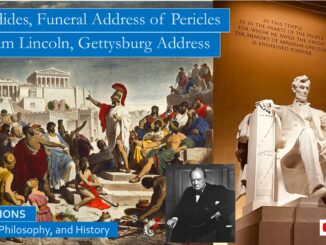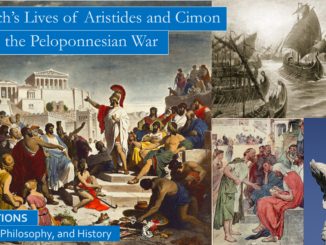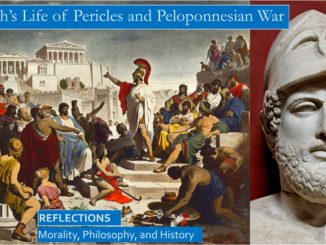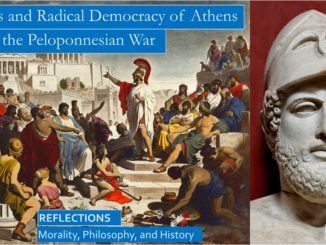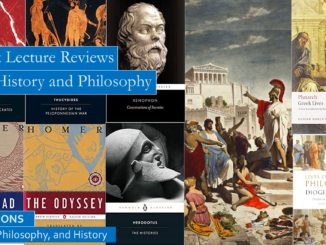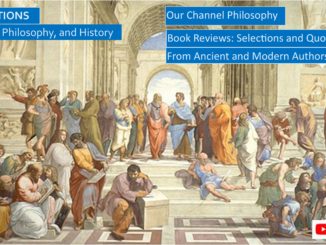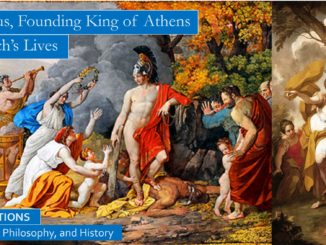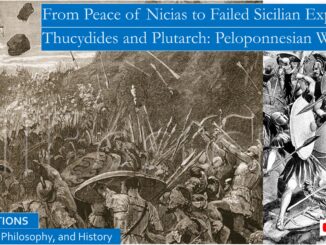
Athens’ Disastrous Defeat at Syracuse in Sicilian Expedition, Peloponnesian Wars
We cannot improve on Will Durant’s summary of this ignoble defeat:
“The disaster broke the spirit of Athens. Nearly half the citizen body was enslaved or dead; half the women of the citizen class were widows, and their children were orphans.”
With modern scholarship, Professor Kenneth Harl estimates that only a quarter to a third of the male citizens of Athens were lost at Syracuse, which makes more sense, but is still a devastating blow. […]

